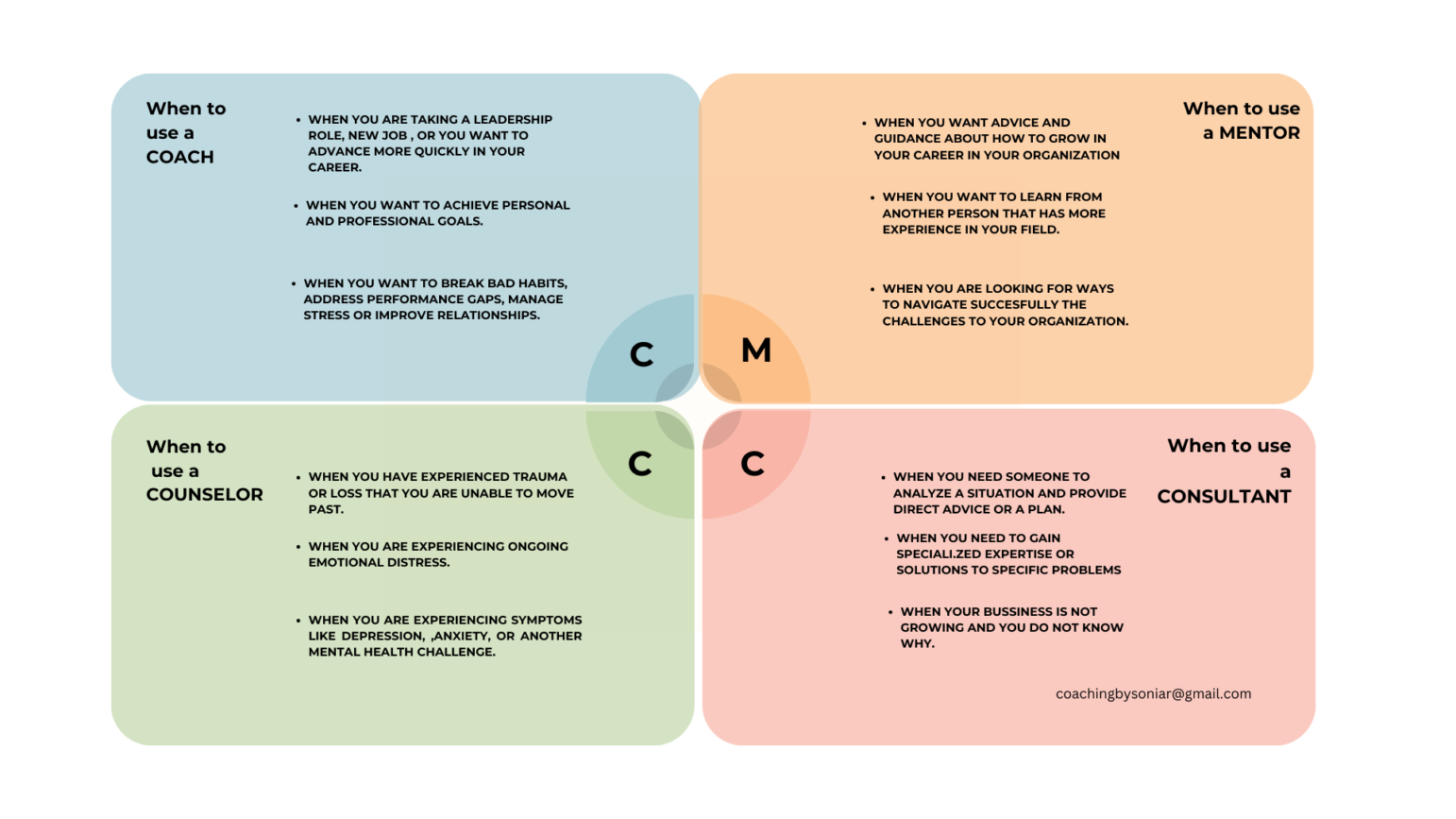
What is coaching?
Coaching is a developmental process where a coach supports a client in achieving specific personal or professional goals by providing guidance. Together, the coach and coachee practice and build the skills and behaviors required to make progress their goals.
ICF defines coaching as partnering with clients in a thought-provoking and creative process that inspires them to maximize their personal and professional potential.
How is coaching distinct from other service professions?
Professional coaching focuses on setting goals, creating outcomes and managing personal change. Sometimes it’s helpful to understand coaching by distinguishing it from other personal or organizational support professions.
• Therapy: Therapy deals with healing pain, dysfunction, and conflict within an individual or in relationships. The focus is often on resolving difficulties arising from the past that hamper an individual’s emotional functioning in the present, improving overall psychological functioning, and dealing with the present in more emotionally healthy ways Coaching, on the other hand, supports personal and professional growth based on self-initiated change in pursuit of specific actionable outcomes. Coaching is future-focused, and the coaching relationship emphasizes action, accountability and follow-through.
• Consulting: Individuals or organizations retain consultants for their expertise. While consulting approaches vary widely, the assumption is the consultant will diagnose problems and prescribe and, sometimes, implement solutions.
With coaching, the assumption is that individuals or teams are capable of generating their own solutions, with the coach supplying supportive, discovery-based approaches and frameworks.
• Mentoring: A mentor is an expert who provides wisdom and guidance based on his or her own experience.
Mentoring may include advising, counseling, and coaching. The coaching process does not include advising or counseling, and focuses instead on individuals or groups setting and reaching their own objectives.


What is your role as a parent or sponsor?
Your role is vital in shaping their confidence, resilience, and sense of responsibility. True support means balancing encouragement with accountability, helping teens take ownership of their actions and development. By creating an environment of trust where they feel safe to express themselves and make mistakes.
Allowing teenagers to experience natural consequences while guiding them through setbacks as opportunities for growth fosters resilience and independence. It’s essential to understand that their choices, such as friends and relationships, can shape their outcomes. This understanding equips them to face challenges with strength and determination.
What is your role as a coachee or client?
- Actively participate in the coaching process
- Take responsibility for your development,
- Be honest with your coach
- Be receptive to feedback
- Be committed to take action or at least be open to change something.

